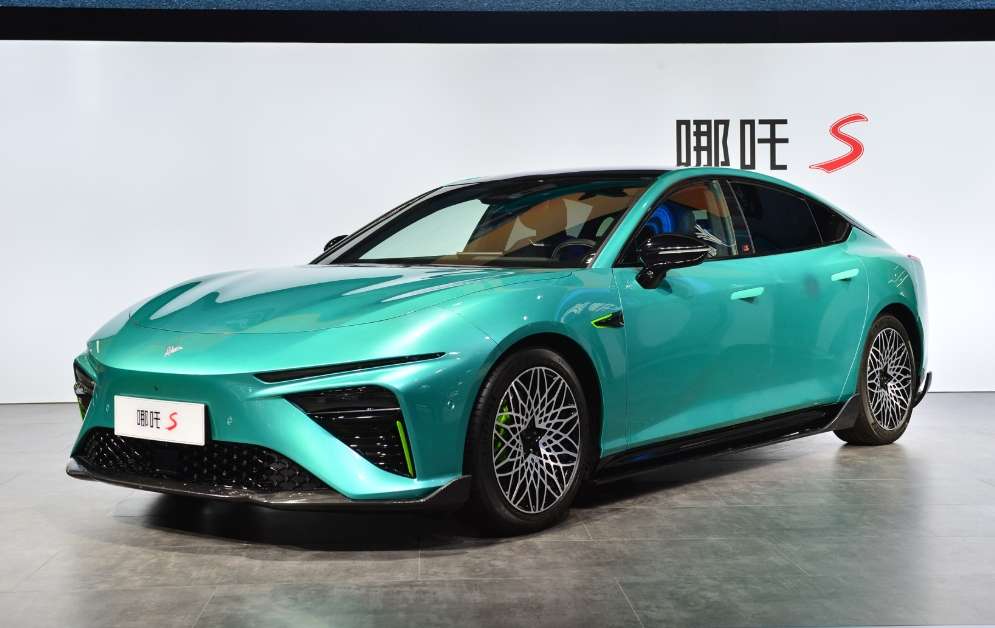In a significant move within the automotive industry, Nezha Automobile, a budding electric vehicle manufacturer from China, has set its sights on an initial public offering (IPO) in the Hong Kong stock market. The announcement, made on June 26, indicates that the company will be filing the necessary paperwork with the Hong Kong Stock Exchange. If successful, Nezha will join the ranks of other notable electric vehicle manufacturers, becoming the fifth to launch on the Hong Kong Exchange, a coveted milestone for many in the industry.
The Nezha brand, under the umbrella of its parent company, Hezhong New Energy Automobile, was first introduced to the market in June 2018. With a diverse lineup of vehicles ranging from the affordable Nezha V to the more premium Nezha GT, the company has aimed to appeal to a broad spectrum of consumers. Currently, the prices for their models fluctuate between approximately $8,600 and $29,900, addressing different consumer segments. However, despite a promising start, the financial health of Nezha has raised eyebrows, with reported cumulative losses surpassing 18.3 billion RMB (approximately 2.8 billion USD) over the past three years.
While Nezha proudly claimed the title of being the top-selling new energy vehicle manufacturer in 2022, their performance in 2023 has shown signs of faltering. The company faced challenges in meeting set sales targets, achieving only 20% of their goals in the first five months of the year. With safety concerns and fierce competition on the rise, Nezha's ascent within the market appears to be stunted.
The journey towards the IPO has not been a smooth ride; since September 2017, Nezha has engaged in numerous fundraising rounds, raising over 27.2 billion RMB (approximately 4 billion USD). Even though the funds were allocated for various growth strategies and a strong push toward IPO, the pressures of the automotive sector loom large. In 2020, Nezha attempted to enter the Science and Technology Innovation Board for listing, but the initiative never materialized. In October 2023, Zhang Yong, co-founder of Nezha, expressed a nonchalant attitude toward the IPO, citing adequate capital reserves and a less than favorable market environment.

In April 2024, a substantial investment of no less than 5 billion RMB was secured by Nezha’s parent company, raising questions about the motive behind such an investment— which included provisions aimed at expediting their IPO efforts. Less than three months later, they are ramping up their ambitions with intentions to expand into international markets and enhance their product portfolio, focusing heavily on smart technology. Financially speaking, however, past data shows troubling signs; Nezha has continuously faced negative cash flow, portraying a grim picture with losses growing year-on-year.
Observing the competition, notable players like NIO, Li Auto, and Xpeng have managed to secure their positions within both American and Hong Kong stock markets. Compared to Nezha, these manufacturers have experienced relative success in their pursuits, suggesting that while Nezha has not been late to the IPO race, it has distinctly fallen behind in terms of actual market performance. The valuation of Nezha’s parent company stands at 30 billion RMB, a clear indicator of its current standing amidst the thriving narrative of electric vehicle manufacturers.
With losses mounting year over year, dissecting the cause of Nezha's struggles reveals that sales costs are overshadowing revenue streams. Relying on sheer bulk to achieve profitability has failed to materialize for the company, as evidenced by their declining sales. In 2023, Nezha managed to shift approximately 127,500 vehicles, a drop of around 16.16% from the previous year. The annual sales target set at 300,000 units was not met, forcing a decline in market ranking from first to fifth amongst electric vehicle manufacturers in 2023.
Looking ahead towards 2024, Nezha faces the daunting task of recognizing fiscal efficacy. The company has undertaken aggressive targets, aiming for global sales of 300,000 vehicles, with 200,000 earmarked specifically for the Chinese market. To meet this goal, Nezha must significantly upscale their average monthly sales, necessitating a figure that exceeds 36,600 units each month. Consequently, co-founder Zhang Yong has actively engaged with audiences through live-streaming events and other marketing initiatives to rekindle interest in the brand.
Moreover, as Nezha ventures into unfamiliar territory, the competition becomes more intense, pitting them against not only established brands but also emerging players in the industry. The landscape has transformed dramatically, shifting from novices to seasoned giants, which pose challenges that require innovative solutions.
An emerging trend within the industry is the push for international expansion. Recognizing the saturated domestic market, Nezha, along with several other Chinese manufacturers, has prioritized overseas markets. Nezha announced 2022 as their 'year of going abroad,' marking a strategic pivot aimed at ensuring long-term survival and growth through new channels. In 2023 alone, Nezha exported approximately 17,000 vehicles, accounting for a significant portion of their overall sales, leading the charge in export numbers among new energy companies in the same class.
Focusing primarily on Southeast Asia, Nezha has strategically positioned itself within a lucrative market, competing fiercely with the likes of BYD and various traditional manufacturers also eyeing the new energy vehicle space. Meanwhile, major brands like BYD have already established factories in Thailand, accentuating their commitment to regional markets. Such rapid developments call for Nezha to reinforce its presence while ensuring they remain competitive among the industry's giants.
Chatting with evaluators and industry analysts, important inquiries arise—can Nezha carve out a substantial foothold in the overseas market while leveraging capital investments to bolster its growth prospects? The answer remains to be seen. As Nezha presses forward with its ambitious IPO plans following the unsuccessful attempt at a Science and Technology board, stakeholders are left with bated breath to see if they can successfully breach the IPO door in Hong Kong. Time will certainly tell whether Nezha’s resilience and strategic maneuvers will ultimately yield dividends in the ever-evolving narrative of the electric vehicle marketplace.